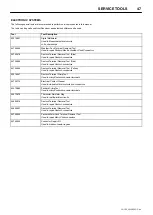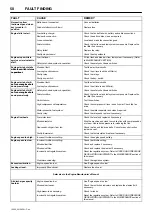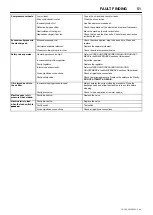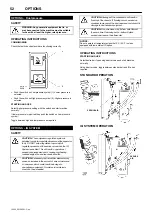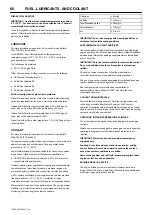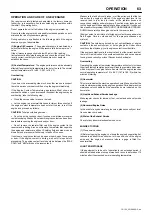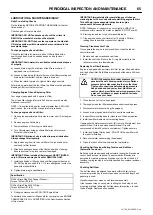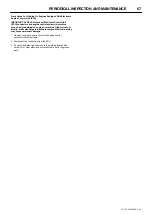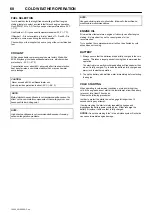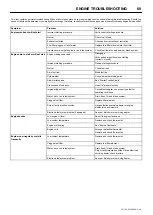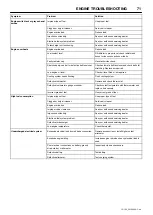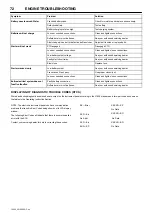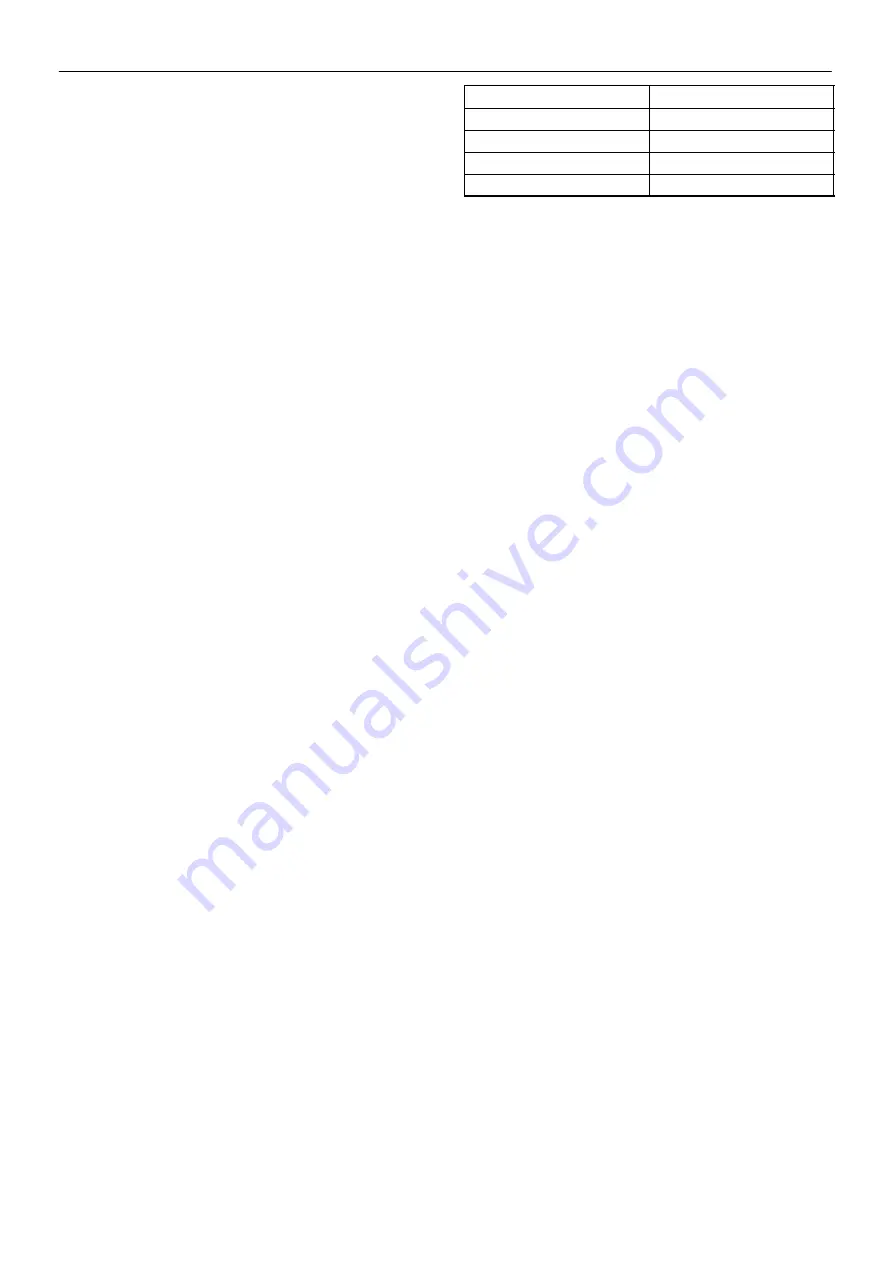
60
FUEL, LUBRICANTS, AND COOLANT
12/150_23136625
−
C en
DIESEL FUEL ADDITIVE
IMPORTANT: Treat fuel when outside temperature drops below
0
_
C (32
_
F). For best results, use with untreated fuel. Follow all
recommended instructions on label.
Use a fuel conditioner (Winter) to treat fuel during the cold weather
season. Winter formulation is a combination diesel fuel conditioner
and anti
−
gel additive.
LUBRICANT
.
For more information please refer to Cummins Service Bulletin
3810340
−
08 (12 June 2009)
Use SAE15W
−
40 oil viscosity based on the expected air
temperature range of 10
F to 122
F (
−
12
C
−
40
C) during the
period between oil changes.
The following oil is preferred:
•
PRO
−
TEC Engine Fluid
Other oils may be used if they meet one or more of the following:
•
API Service Classification CI
−
4
•
ACEA Specification E3
•
ACEA Specification E4
•
ACEA Specification E5
Multi
−
viscosity diesel engine oils are preferred.
Diesel fuel quality and sulfur content must comply with all existing
emissions regulations for the area in which the engine operates.
If diesel fuel with sulfur content greater than 0.05% (500 ppm) is
used, reduce the oil and filter change interval by 100 hours.
If diesel fuel with sulfur content greater than 0.5% (5000 ppm) is
used, reduce the service interval by 50%.
Diesel fuel with sulfur content greater than 1.0% (10,000 ppm) is not
recommended.
COOLANT
For more information please refer to Cummins Service Bulletin
3666132
−
04 (07 Dec 2005)
The engine cooling system is filled to provide year
−
round protection
against corrosion and cylinder liner pitting, and winter freeze
protection to
−
37
C (
−
34
F).
Low silicate ethylene glycol base coolants for heavy
−
duty engines
may be used if they meet one of the following specifications:
•
ASTM D6210 (coolant concentrate) in a 40 to 60% mixture of
concentrate with quality water.
Coolants meeting these specifications require use of supplemental
coolant additives, formulated for heavy
−
duty diesel engines, for
protection against corrosion and cylinder liner erosion and pitting.
A 50% mixture of ethylene glycol engine coolant in water provides
freeze protection to
−
37
C (
−
34
F). If protection at lower
temperatures is required, consult your dealer for recommendations.
Water quality is important to the performance of the cooling system.
Distilled, or de
−
mineralized water is recommended for mixing with
ethylene glycol base engine coolant concentrate.
Chlorides
<40mg/L
Sulfates
<100 mg/L
Total Dissolved Solids
<340 mg/L
Total Hardness
<170 mg/L
pH
5.5 to 9.0
IMPORTANT: Do not use cooling system sealing additives or
antifreeze that contains sealing additives.
SUPPLEMENTAL COOLANT ADDITIVES
The concentration of coolant additives is gradually depleted during
engine operation. For all recommended coolants, replenish additives
between drain intervals by adding a supplemental coolant additive
every 12 months.
IMPORTANT: Only use coolant additive to replenish the coolant.
Do not use additive when the entire system is drained and
refilled.
Consult the coolant supplier and follow the manufacturer’s
recommendation for use of supplemental coolant additives.
The use of non
−
recommended supplemental coolant additives may
result in additive drop
−
out and gelation of the coolant.
Add the manufacturer’s recommended concentration of
supplemental coolant additive. DO NOT add more than the
recommended amount.
COOLANT DRAIN INTERVALS
Drain the factory fill engine coolant, flush the cooling system, and
refill with new coolant after the first 2 years or 2000 hours of
operation. Subsequent drain intervals are determined by the coolant
used for service. At each interval, drain the coolant, flush the cooling
system, and refill with new coolant.
OPERATING IN WARM TEMPERATURE CLIMATES
The diesel engine is designed to operate using glycol base engine
coolants.
Always use a recommended glycol base engine coolant, even when
operating in geographical areas where freeze protection is not
required.
IMPORTANT: Water may be used as coolant in emergency
situations only.
Foaming, hot surface aluminum and iron corrosion, scaling,
and cavitation will occur when water is used as the coolant,
even when coolant conditioners are added.
Drain cooling system and refill with recommended glycol base
engine coolant as soon as possible.
ENGINE BREAK
−
IN SERVICE
The engine is ready for normal operation. However, extra care
during the first 100 hours of operation will result in more satisfactory
long
−
term engine performance and life.


